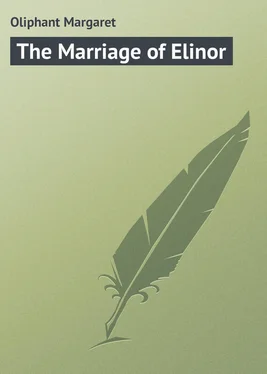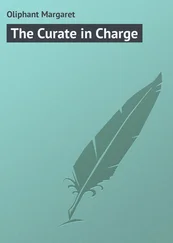Margaret Oliphant - The Marriage of Elinor
Здесь есть возможность читать онлайн «Margaret Oliphant - The Marriage of Elinor» — ознакомительный отрывок электронной книги совершенно бесплатно, а после прочтения отрывка купить полную версию. В некоторых случаях можно слушать аудио, скачать через торрент в формате fb2 и присутствует краткое содержание. Жанр: foreign_prose, на английском языке. Описание произведения, (предисловие) а так же отзывы посетителей доступны на портале библиотеки ЛибКат.
- Название:The Marriage of Elinor
- Автор:
- Жанр:
- Год:неизвестен
- ISBN:нет данных
- Рейтинг книги:3 / 5. Голосов: 1
-
Избранное:Добавить в избранное
- Отзывы:
-
Ваша оценка:
- 60
- 1
- 2
- 3
- 4
- 5
The Marriage of Elinor: краткое содержание, описание и аннотация
Предлагаем к чтению аннотацию, описание, краткое содержание или предисловие (зависит от того, что написал сам автор книги «The Marriage of Elinor»). Если вы не нашли необходимую информацию о книге — напишите в комментариях, мы постараемся отыскать её.
The Marriage of Elinor — читать онлайн ознакомительный отрывок
Ниже представлен текст книги, разбитый по страницам. Система сохранения места последней прочитанной страницы, позволяет с удобством читать онлайн бесплатно книгу «The Marriage of Elinor», без необходимости каждый раз заново искать на чём Вы остановились. Поставьте закладку, и сможете в любой момент перейти на страницу, на которой закончили чтение.
Интервал:
Закладка:
Said Elinor, unsuspecting, "That is just what he is, John! I knew you would divine his character at once. You can't think how kind he is – kind to everybody. He never judges anyone, or throws a stone, or makes an insinuation." ("Probably because he knows he cannot bear investigation himself," John said, in his heart.) "That was the thing that took my heart first. Everybody is so censorious – always something to say against their neighbours; he, never a word."
"That's a very good quality," said John, reluctantly, "if it doesn't mean confounding good with bad, and thinking nothing matters."
Elinor gave him a grieved, reproachful look, and loosened the clasping of her hands. "It is not like you to imagine that, John!"
"Well, what is a man to say? Don't you see, if you do nothing but blow his trumpet, the only thing left for me to do is to insinuate something against him? I don't know the man from Adam. He may be an angel, for anything I can say."
"No; I do not pretend he is that," said Elinor, with impartiality. "He has his faults, like others, but they are nice faults. He doesn't know how to take care of his money (but he hasn't got very much, which makes it the less matter), and he is sometimes taken in about his friends. Anybody almost that appeals to his kindness is treated like a friend, which makes precise people think – but, of course, I don't share that opinion in the very least."
("A very wasteful beggar, with a disreputable set," was John's practical comment within himself upon this speech.)
"And he doesn't know how to curry favour with people who can help him on; so that though he has been for years promised something, it never turns up. Oh, I know his faults very well indeed," said Elinor; "but a woman can do so much to make up for faults like that. We're naturally saving, you know, and we always keep those unnecessary friends that were made before our time at a distance; and it's part of our nature to coax a patron – that is what Mariamne says."
"Mariamne?" said John.
"His sister, who first introduced him to me; and I am very fond of her, so you need not say anything against her, John. I know she is – fashionable, but that's no harm."
"Mariamne," he repeated; "it is a very uncommon name. You don't mean Lady Mariamne Prestwich, do you? and not – not – Elinor! not Phil Compton, for goodness' sake? Don't tell me he's the man?"
Elinor's hands dropped from his arm. She drew herself up until she seemed to tower over him. "And why should I say it is not Mr. Compton," she asked, with a scarlet flush of anger, so different from that rosy red of love and happiness, covering her face.
"Phil Compton! the dis -Honourable Phil! Why, Elinor! you cannot mean it! you must not mean it!" he cried.
Elinor said not a word. She turned from him with a look of pathetic reproach but with the air of a queen, and walked into the house, he following in a ferment of wrath and trouble, yet humbled and miserable more than words could say. Oh, the flowery, peaceful house! jasmine and rose overleaping each other upon the porch, honeysuckle scenting the air, all manner of feminine contrivances to continue the greenness and the sweetness into the little bright hall, into the open drawing-room, where flowers stood on every table amid the hundred pretty trifles of a woman's house. There was no one in this room where she led him, and then turned round confronting him, taller than he had ever seen her before, pale, with her nostrils dilating and her lips trembling. "I never thought it possible that you of all people in the world, you, John – my stand-by since ever I was a baby – my – Oh! what a horrid thing it is to be a woman," cried Elinor, stamping her foot, "to be ready to cry for everything! – you, John! that I always put my trust in – that you should turn against me – and at the very first word!"
"Elinor," he said, "my dear girl! not against you, not against you, for all the world!"
"And what is me ?" she said, with that sudden turning of the tables and high scorn of her previous argument which is common with women; "do I care what you do to me ? Oh, nothing, nothing! I am of no account, you can trample me down under your feet if you like. But what I will not bear," she said, clenching her hands, "is injustice to him: that I will not bear, neither from you, Cousin John, who are only my distant cousin, after all, and have no right to thrust your advice upon me – or from any one in the world."
"What you say is quite true, Elinor, I am only a distant cousin – after all: but – "
"Oh, no, no," she cried, flying to him, seizing once more his arm with her clinging hands, "I did not mean that – you know I did not mean that, my more than brother, my good, good John, whom I have trusted all my life!"
And then the poor girl broke out into passionate weeping with her head upon his shoulder, as she might have leant upon the handy trunk of a tree, or on the nearest door or window, as John Tatham said in his heart. He soothed her as best he could, and put her in a chair and stood with his hand upon the back of it, looking down upon her as the fit of crying wore itself out. Poor little girl! he had seen her cry often enough before. A girl cries for anything, for a thorn in her finger, for a twist of her foot. He had seen her cry and laugh, and dash the tears out of her eyes on such occasions, oh! often and often: there was that time when he rushed out of the bushes unexpectedly and frightened her pony, and she fell among the grass and vowed, sobbing and laughing, it was her fault! and once when she was a little tot, not old enough for boy's play, when she fell upon her little nose and cut it and disfigured herself, and held up that wounded little knob of a feature to have it kissed and made well. Oh, why did he think of that now! the little thing all trust and simple confidence! There was that time too when she jumped up to get a gun and shoot the tramps who had hurt somebody, if John would but give her his hand! These things came rushing into his mind as he stood watching Elinor cry, with his hand upon the back of her chair.
She wanted John's hand now when she was going forth to far greater dangers. Oh, poor little Nelly! poor little thing! but he could not put her on his shoulder and carry her out to face the foe now.
She jumped up suddenly while he was thinking, with the tears still wet upon her cheeks, but the paroxysm mastered, and the light of her eyes coming out doubly bright like the sun from the clouds. "We poor women," she said with a laugh, "are so badly off, we are so handicapped, as you call it! We can't help crying like fools! We can't help caring for what other people think, trying to conciliate and bring them round to approve us – when we ought to stand by our own conscience and judgment, and sense of what is right, like independent beings."
"If that means taking your own way, Elinor, whatever any one may say to you, I think women do it at least as much as men."
"No, it does not mean taking our own way," she cried, "and if you do not understand any better than that, why should I – But you do understand better, John," she said, her countenance again softening: "you know I want, above everything in the world, that you should approve of me and see that I am right. That is what I want! I will do what I think right; but, oh, if I could only have you with me in doing it, and know that you saw with me that it was the best, the only thing to do! Happiness lies in that, not in having one's own way."
"My dear Elinor," he said, "isn't that asking a great deal? To prevent you from doing what you think right is in nobody's power. You are of age, and I am sure my aunt will force nothing; but how can we change our opinions, our convictions, our entire points of view? There is nobody in the world I would do so much for as you, Elinor: but I cannot do that, even for you."
Читать дальшеИнтервал:
Закладка:
Похожие книги на «The Marriage of Elinor»
Представляем Вашему вниманию похожие книги на «The Marriage of Elinor» списком для выбора. Мы отобрали схожую по названию и смыслу литературу в надежде предоставить читателям больше вариантов отыскать новые, интересные, ещё непрочитанные произведения.
Обсуждение, отзывы о книге «The Marriage of Elinor» и просто собственные мнения читателей. Оставьте ваши комментарии, напишите, что Вы думаете о произведении, его смысле или главных героях. Укажите что конкретно понравилось, а что нет, и почему Вы так считаете.












